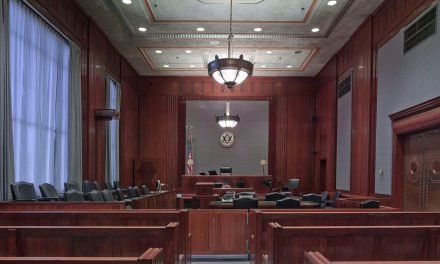Fannie Mae, the ne’er do well ugly stepsister of government housing finance, has posted record profits in 2012, with a net income of $17.2 billion. Fannie’s profits have eclipsed those of blue chip companies such as General Electric (GE) and Warren Buffet’s own Berkshire Hathaway.
Both Fannie Mae and Freddie Mac (Frannie) have consistently operated at a loss since they came under government control in 2008. In order to honor their guarantee to investors, Frannie has drawn over $187 billion from the U.S. Treasury over the past 5 years.
News of Fannie’s profitability has given pause to lawmakers working on housing finance reform. Although some progress has been made with Dodd-Frank, little has been decided on regarding Frannie’s fate. Proposals range from dissolving the government-sponsored enterprises (GSEs) altogether to keeping them in tact as they are.
While the former seemed likely while Frannie continuously plundered the Treasury’s coffers, it appears opinions have changed in light of their newfound profitability. Although the positive earnings report has turned heads, steps towards reform promise to remain slow.
Officials at the Treasury, along with a bi-partisan Congressional committee, are working on a “blueprint” for reform. But business will proceed as usual for the time being.
first tuesday insight
Okay, so zero lower bound interest rates are here forever, since we have been here for five years, right? Everyone who borrows low and lends high will always make a profit?
Well, actually not, as Frannie will learn.
Usually we say you need at least three consecutive months of consistent data (one quarter) to get a wisp of a trend. In the case of Fannie and Freddie, one year doesn’t even signal a trend.
The reason being, Frannie is dealing in extremely long-term investments — 30-year fixed rate mortgages (FRMs) for the most part — and borrowing at stimulus rates temporarily provided by the Fed to encourage increased employment by the private sector.
Ultimately, the only way Frannie profits in the long run is when Joe and Jane Mainstreet make their mortgage payments on time and until the note is satisfied, either through a full payoff or through a positive equity sale.
Frannie’s short-term “profits” depend on investor demand for mortgage-backed bonds (MBB) and the Fed not raising rates (which, of course, they eventually will, likely starting in 2015). But it’s not proper to refer to this revenue as “profit” since it refers to income generated by selling bonds. They are paid back, with interest, to the investor.
The proper way of looking at it is:
- Frannie creates greater net profits each time an MBB bond is sold at today’s very low rates of return for private investors (think safe haven $US);
- Frannie uses that cash to buy more mortgages with very high rates (compared to bond rates); and
- the more mortgages they buy (that actually perform), the greater their net operating income for the short run.
Currently, Frannie’s profit and loss statement for the past year only makes them appear profitable because there is increased investment in MBBs due to zero lower bound rates on one side, and recent news regarding the real estate recovery on the other side. Investing and homeownership are confidence games.
Right now, Wall Street investors are feeling good about everything, real estate included. The source of this optimism? Prices are reported as up (without concurrently reporting that sales volume is ominously trending down).
In addition to earning higher returns due to greater demand on the bond market, each MBB sold is also more profitable since bond investors are currently paying inflated prices for low returns. It is well documented that the big banks are inflating current mortgage rates up to half a percentage point above par.
This excess interest rate cost is borne by borrowers who purchase a home, providing the excess profits reaped by the originating banks first and Frannie second. This does not sound like a good deal for Main Street USA, and even less for investors jumping into MBB pools.
Related article:
However, this recent interest on behalf of Wall Street investors in real estate is merely a self-fulfilling prophecy. Their ancillary buddies in the real estate speculation game are bidding up prices with their cash offers, creating the illusion of a real estate recovery. So, speculation in the real estate market is leading to speculation in the MBB market, which is resulting in a temporary increase in Frannie’s current operating net income, and not necessarily their profits! Smoke and mirrors, reflecting more smoke and mirrors.
Related article:
Hopefully those in Congress who are working on housing finance reform will make rational decisions based on the long-term stability of the real estate market. It would be a pity to decide Frannie’s fate based on prophecies born from speculation. Normal times for judging success are years away.
Re: Fannie Mae profits complicate U.S. housing-finance overhaul and Fannie Mae beats Wal-Mart and GE with record profit from 2012


















